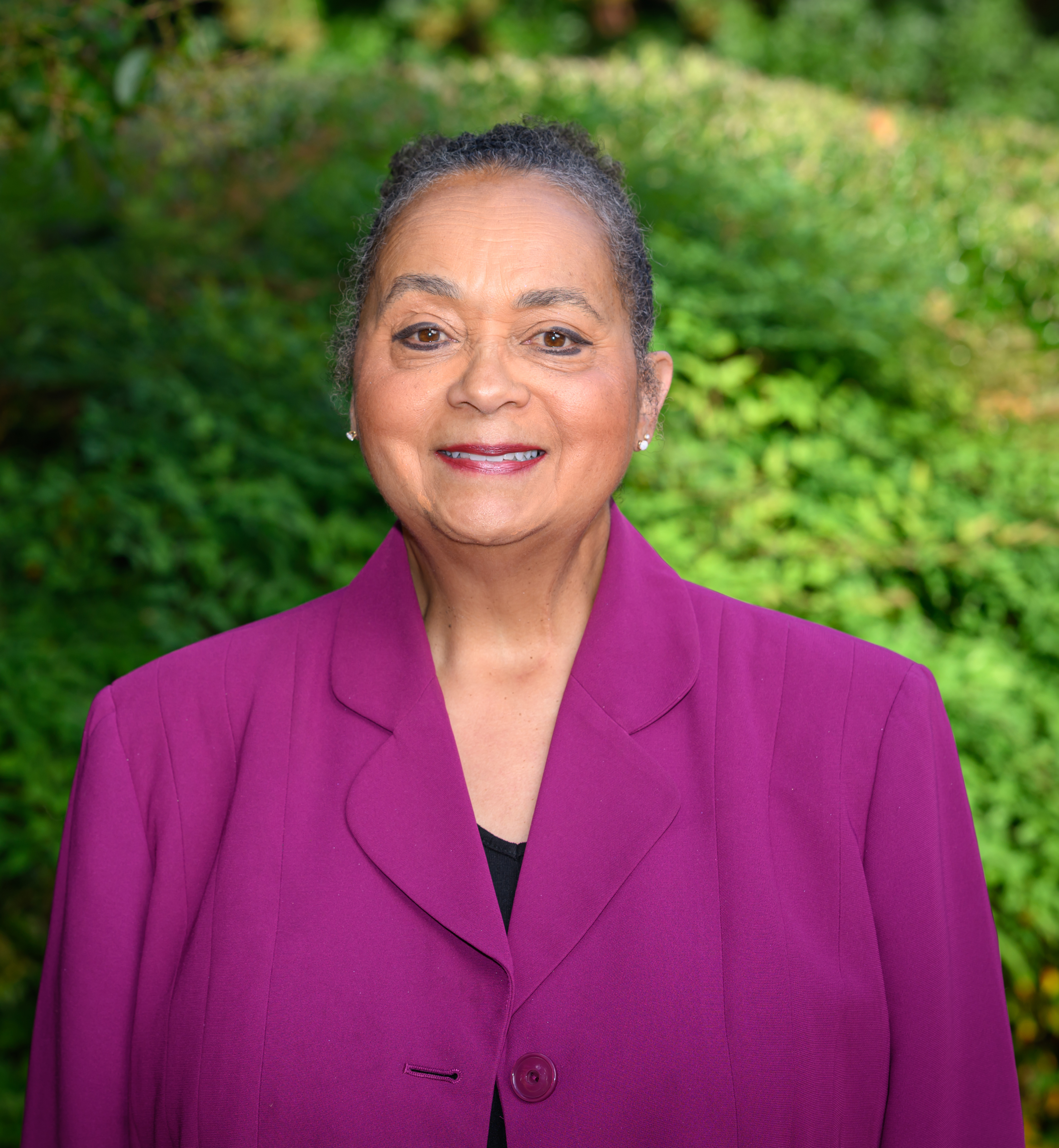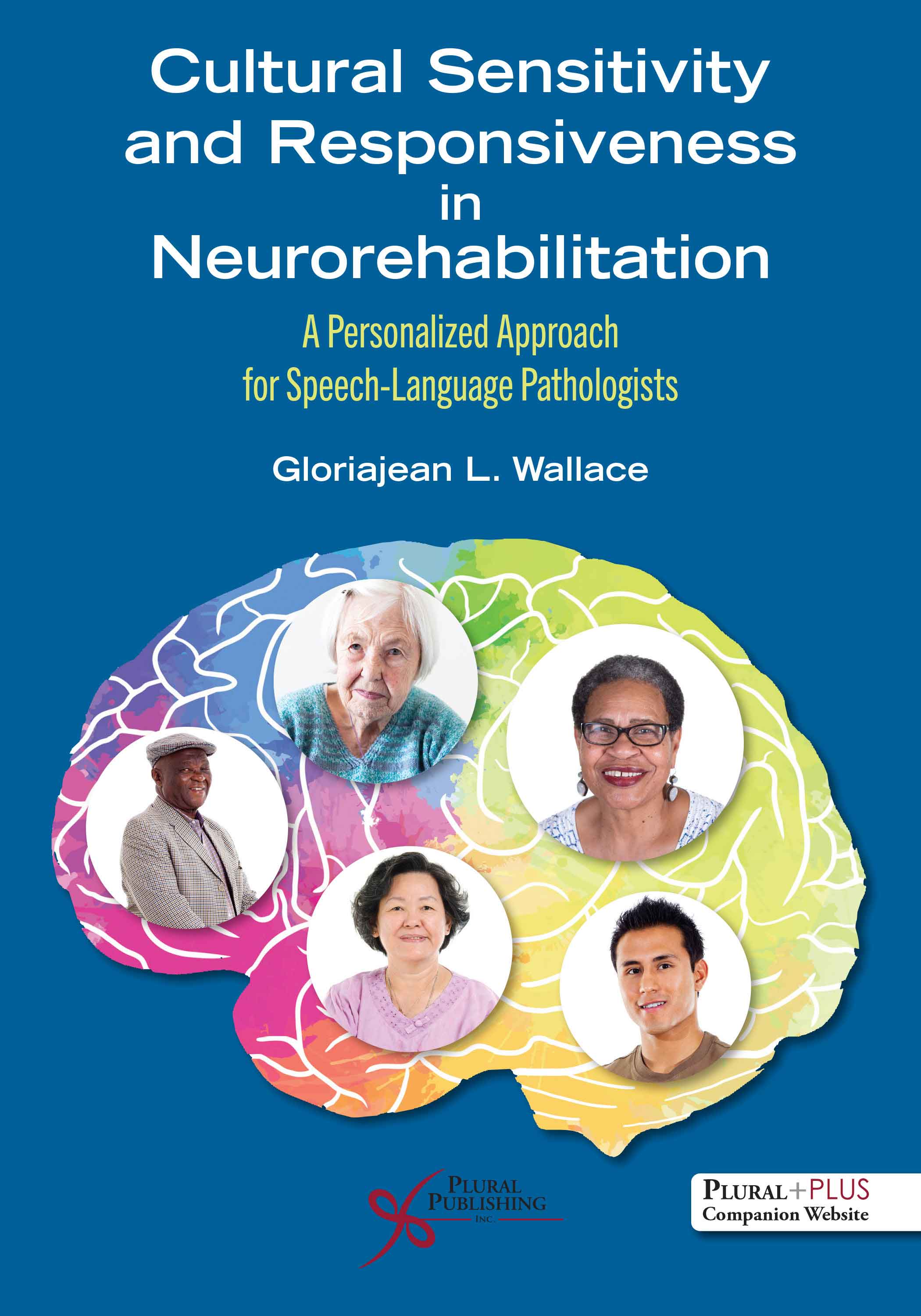
Cultural Sensitivity and Responsiveness in Neurorehabilitation: A Personalized Approach for Speech-Language Pathologists
First Edition
Gloriajean L. Wallace
Details: 853 pages, B&W, Softcover, 7" x 10"
ISBN13: 978-1-63550-032-5
© 2025 | Available
For Instructors
Purchase
Cultural Sensitivity and Responsiveness in Neurorehabilitation: A Personalized Approach for Speech-Language Pathologists is a groundbreaking and transformative resource for designing quality and equitable neurorehabilitation care for individuals from diverse communities. Material coverage is comprehensive, and chapters are user-friendly for speech-language pathologists (SLP) and SLP students alike. Case presentations are provided to demonstrate best practices. As our world becomes increasingly more diverse, it is imperative for SLPs to be knowledgeable about and experienced with foundational information relating to diversity, equity, inclusion, implicit bias, intersectionality, and SLP best practices for cases from culturally and linguistically diverse communities. The text culminates with an insightful epilogue featuring people from diverse communities from around the world who have neurogenic communication, cognitive, and swallowing disorders, and who share information about what they would like neurorehabilitation specialists to know.
The book is organized into seven sections:
Part I: Introduction to Personalized Care sets the stage by introducing the concept of multicultural neurogenics and personalized care. Chapters delve into topics like implicit bias, interprofessional collaboration, and the tools clinicians need for effective case management when working with diverse populations.
Part II: Building a Foundation for Neurorehabilitation in a Multicultural World: Personalization Personified provides practical guidance for SLPs. It covers the preparation for case contact, working with interpreters and translators, and the assessment and management of speech, language, cognitive, and swallowing issues in culturally and linguistically diverse populations.
Part III: Specialty Neurogenics Chapters offers in-depth knowledge on various neurogenic conditions such as aphasia, traumatic brain injury, right hemisphere brain damage, the dementias, dysarthrias, and dysphagia within a cultural context.
Part IV: A Sampling of Information About U.S. Census Bureau Racial/Ethnic Groups delves into the unique cultural and communication factors related to various racial and ethnic groups in the United States, including Blacks, Hispanics, Chinese and Asian Americans, American Indians and Alaska Natives, and White Americans.
Part V: Intersectionality examines the intersection of factors that create unique challenges in care, including ethical perspectives for serving LGBTQIA+ individuals, trauma-informed care for marginalized populations, and the cultural aspects of care for the Deaf community.
Part VI: Contributions from Educators and a Look at Neurorehabilitation Care Trends within the U.S. provides insights from academics on diversity, equity, and inclusion in education, designing courses that promote DEI, and current trends in SLP neurorehabilitation.
Part VII presents real-world cases with accompanying videos illustrating best practices in SLP neurorehabilitation care for diverse communities. These cases cover a wide range of scenarios, from collaboration between medical SLPs and interpreters to culturally adapted therapy for older adults and complex management considerations for stroke survivors from the Deaf community. This section ends with a chapter by visionaries from Asia, Africa, Europe, Oceania, South America, and North America sharing their insights on bridging the international diversity sensitivity and responsiveness gap, emphasizing the importance of cultural competence in a global context.
Key Features
- Comprised of 40 chapters by 80 renowned authors and over 100 total contributors from diverse communities, including experienced SLP clinicians, academicians, and researchers; diversity, equity, and inclusion (DEI) specialists; and professionals from the areas of audiology, medicine, psychology, and education
- Includes real-world case studies, including accompanying videos to illustrate best practices in SLP neurorehabilitation care for people from diverse communities
- Discusses diversity matters for people with major neurologically based communication, cognitive, and swallowing disorders; and by race/ethnicity and culture, with attention to intersectionality
- Features content designed specifically for this book, including considerations for individuals with neurogenic disorders who are from the Deaf community; trauma-informed care for the unsheltered and people who have experienced interpartner violence; as well as intersectionality issues
- Incorporates perspectives about the value of non-traditional approaches to supplement SLP treatment, health literacy, and public health partnerships
- Provides information by international SLPs about DEI issues that matter most in their respective countries and features thoughts about future neurorehabilitation directions
- Includes interviews with people who have neurogenic communication, cognitive, and swallowing disorders from culturally and linguistically diverse communities in the United States and abroad, providing insights into what matters most and how to best achieve personalization of neurorehabilitation care from their perspective
Video clip from Chapter 35: "What to Do When Mom Has a Hearing Loss? The Life-Changing Benefits of Hearing Aids for an African American Nonagenarian"
PluralPlus Online Ancillaries
For professionals: Videos
Acknowledgments
Contributors
Part I. Introduction to Personalized Care
Chapter 1. Finding Our North Star: Introduction to Multicultural Neurogenics and Personalized Speech-Language Neurorehabilitation Care for People From Diverse Communities
Gloriajean L. Wallace
Chapter 2. Implicit Bias
Karen C. Davis and Noma Anderson
Chapter 3. Interprofessional Collaboration and Cultural Competence in Neurorehabilitation
Jeffrey S. Hecht and Diego Ricardo Báez
Chapter 4. The Multiculturally Competent Clinician’s Toolkit to Effective Case Management and Collaborative Practices in Working With Diverse Populations
Maxine Langdon Starr
Chapter 5. Providing Neurorehabilitation Services to Multiethnic Adult Populations With Communication Disorders
José G. Centeno
Chapter 6. Advancing Equity in Aphasia Outcomes: An Exploration of Race and Clinical Management Considerations
Charles Ellis Jr., Richard K. Peach, and Patrick M. Briley
Part II. Building a Foundation for Neurorehabilitation in a Multicultural World: Personalization Personified
Chapter 7. Preparing for Case Contact: Conducting Ethnographic Interviews
Carol Westby
Chapter 8. Speech-Language Pathologists (SLPs) Working With Interpreters and Translators in a Medical Setting
Henriette W. Langdon
Chapter 9. Assessment of Individuals From Culturally and Linguistically Diverse Populations
Gloriajean L. Wallace
Chapter 10. Management of Hearing Loss for Speech-Language Pathologists and Audiologists Who Provide Services to Neurogeriatric Populations From Diverse Communities
Jay R. Lucker
Chapter 11. Treatment of Individuals From Culturally and Linguistically Diverse Populations
Maria L. Muñoz
Chapter 12. A Journey Toward Communication Health and Wellness in Adult Patients and Their Families: Strategies for Communication Sciences and Disorders Practitioners and Students
Carolyn M. Mayo and Robert Mayo
Chapter 13. Complimentary and Integrative Medicine in Adult Neurogenics
Rebecca Shisler Marshall, Jacqueline Laures-Gore, and Bijoyaa Mohapatra
Part III: Specialty Neurogenics Chapters
Chapter 14. Aphasia
Samantha Siyambalapitiya, Vishnu K. K. Nair, Frances Cochrane, and Anne Huang
Chapter 15. Traumatic Brain Injury in Special Populations
Carl A. Coelho, Alaina S. Davis, Sarah Key-DeLyria. André Lindsey, Annette T. Maruca, Jennifer Rae Myers, and Nancy P. Solomon
Chapter 16. Cultural Considerations in the Assessment of Communication After Right Hemisphere Brain Damage
Perrine Ferré, Rochele P. Fonseca, Yves Joanette, Margaret Lehman Blake, and Jamila Minga
Chapter 17. Dementia and Mild Cognitive Impairment: Understanding the Role of Speech-Language Pathologists
Nidhi Mahendra
Chapter 18. Management of the Dysarthrias: Communication in a Cultural Context
Kathryn Yorkston, Kathryn Lent, Michael I. Burns, and Carolyn Baylor
Chapter 19. Cultural Responsiveness in Dysphagia Practice: Complex Systems
Luis F. Riquelme and Mershen Pillay
Part IV: A Sampling of Information About U.S. Census Bureau Racial/Ethnic Groups
Chapter 20. Blacks and the African Diaspora With Focus on African Americans: Varied Cultures, Communication Patterns, and Clinical Management Considerations
Gloriajean L. Wallace
Chapter 21. Hispanics: Richness in Diversity
Silvia Martinez
Chapter 22. Exploring the Diverse Communication and Cultural Landscape of Chinese Americans and Asian Americans: Implications for Health Care
Anthony Pak-Hin Kong and Li-Rong Lilly Cheng
Chapter 23. American Indians and Alaska Natives: Culture, Communication, and Clinical Considerations
Ella Inglebret and Rhonda Friedlander
Chapter 24. White Americans: Culture, Communication, and Clinical Considerations
Angela Ciccia and Steven J. Cloud
Part V: Intersectionality: Confounding Effect of Factors That Pose Unique Challenges to Care
Chapter 25. Ethical Perspectives for Serving 2SLGBTQIA+ Individuals With Neurogenic Considerations
Ruchi Kapila and Haley Fulk
Chapter 26. Implementing Culturally Responsive and Trauma-Informed Care in Acquired Cognitive–Communication Disorders: Speech-Language Pathology Considerations for Marginalized and Underserved Populations
Catherine Wiseman-Hakes, Kathryn Y. Hardin, and Maya Albin
Chapter 27. The Deaf Community: Culture, Communication, and Neurorehabilitation
Kristen K. Maul, Daniel Maier, and Laura Curtin
Part VI: Contributions From Educators and a Look at Neurorehabilitation Care Trends Within the U.S.
Chapter 28. From Ally to Accomplice: Dismantling White Supremacy Culture in the Classroom and the Workplace (Observations About DEI From an Academic’s Perspective)
Diego Ricardo Báez
Chapter 29. Academic and Clinical Training to Promote Culturally Sensitive and Responsive Speech-Language Pathology Neurorehabilitation Care
Gloriajean L. Wallace
Chapter 30. Speech-Language Pathology Neurorehabilitation Service Trends for People From Diverse Communities: Evidence From the American Speech-Language-Hearing Association’s National Outcomes Measurement System (NOMS)
Robert C. Mullen and Gloriajean L. Wallace
Part VII: Interesting Case Scenarios and Practical Clinical Discussions About SLP Neurorehabilitation for People From Diverse Communities
Chapter 31. Collaboration Between a Medical Speech-Language Pathologist and an Interpreter: A Simulated Case Illustration (With Video)
Henriette W. Langdon and Maxine Langdon Starr (With Hernández Joel Mancla in the Role of the Patient)
Chapter 32. Virtual Aphasia Group Treatment in a Life Participation Setting (With Video)
Suzanne Coyle and Brooke Hatfield
Chapter 33. Cultural Adaptation of Cognitive Stimulation Therapy for a Community of Black Older Adults in North St. Louis (With Video)
Whitney Anne Postman, Hisako Matsuo, Kailin Leisure, Rebecca Poche, Tayla Slay, Sydney Elizondo, and Elena Everhart
35. Cocreating a Culturally Responsive and Trauma-Informed Approach for Speech-Language Pathologists Working With Adults With Acquired Neurogenic Cognitive–Communication Disorders: A Case Narrative (With Video)
Catherine Wiseman-Hakes, Roxanne Riess, and Maya Albin
Chapter 35. What to do When Mom Has a Hearing Loss? The Life Changing Benefits of Hearing Aids for an African American Nonagenarian (With Video)
Gloriajean L. Wallace and Gloria E. Valencia
Chapter 36. Complex Management Considerations for a Multilingual, Multimodal Stroke Survivor With Aphasia From the Deaf Community (With Video)
Kristen K. Maul, Daniel Maier, and Laura Curtin
Chapter 37. American Samoa and the Military: A Case Demonstrating Where Cultural, Language, Rural Geographic Location, and Military Experience Intersect
Pauline Mashima and Shari Goo-Yoshino
Chapter 38. Unauthorized Immigration Status
Wendy Burton and Maria Carolina Amaya
Chapter 39. “A” is for Amazing: A Survivor’s Journey Through Stroke, Aphasia, and COVID-19 (With Video)
Gloriajean L. Wallace and Patrick E. Carey
Chapter 40. Discussion About Neurorehabilitation From the Voices of International Neurorehabilitation Visionaries
Gloriajean L. Wallace, Isamu Shibamoto, Tamaki Onishi, Pauline Mashima, Gerald C. Imaezue, Jacqueline Stark, Sonia Fredericks, and Won-Ming Amy Wong
Epilogue: Nothing About Us Without Us: People With Neurologically Based Communication, Cognitive, and Swallowing Disorders Share Their Thoughts
Interviewer Gloriajean L. Wallace, With Interview Participants (in Order of Appearance): Jenell Gordon, Tara Green, Rick Mason, Kelvin Williams, María Fernanda Corral Agudelo, Sofia Irene Bauzá, Omar Bordachar, Carolina Ulloa, Sofia Carrasco, Alfredo Díaz, Gloria E. Valencia (Lead Spanish Language Interpreter), and Maria Biti Clerici (Spanish Language Interpreter)
Purchase of Cultural Sensitivity and Responsiveness in Neurorehabilitation: A Personalized Approach for Speech-Language Pathologists comes with access to supplementary resources on a PluralPlus companion website.
The companion website is located at: https://www.pluralpublishing.com/publication/CSRN
Supplementary Resources:
The student resources include Video Vignettes.
To access the student resources, you must register on the companion website and log in using the access code located in the front of your textbook.
*Note: If you have purchased this book used or have rented it, your access code will not work if it was already redeemed by the original buyer of the book. Plural Publishing does not offer replacement access codes for used or rented books.
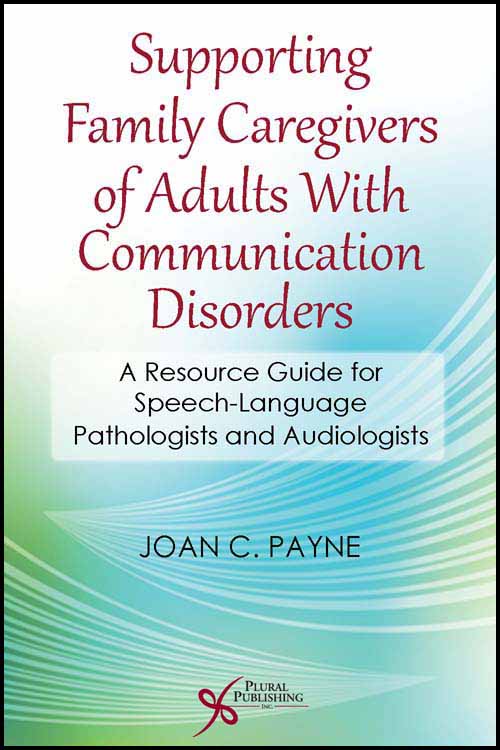
Supporting Family Caregivers of Adults With Communication Disorders: A Resource Guide for Speech-Language Pathologists and Audiologists
First Edition
Joan C. Payne
Details: 304 pages, B&W, Softcover, 6" x 9"
ISBN13: 978-1-59756-502-8
© 2015 | Available
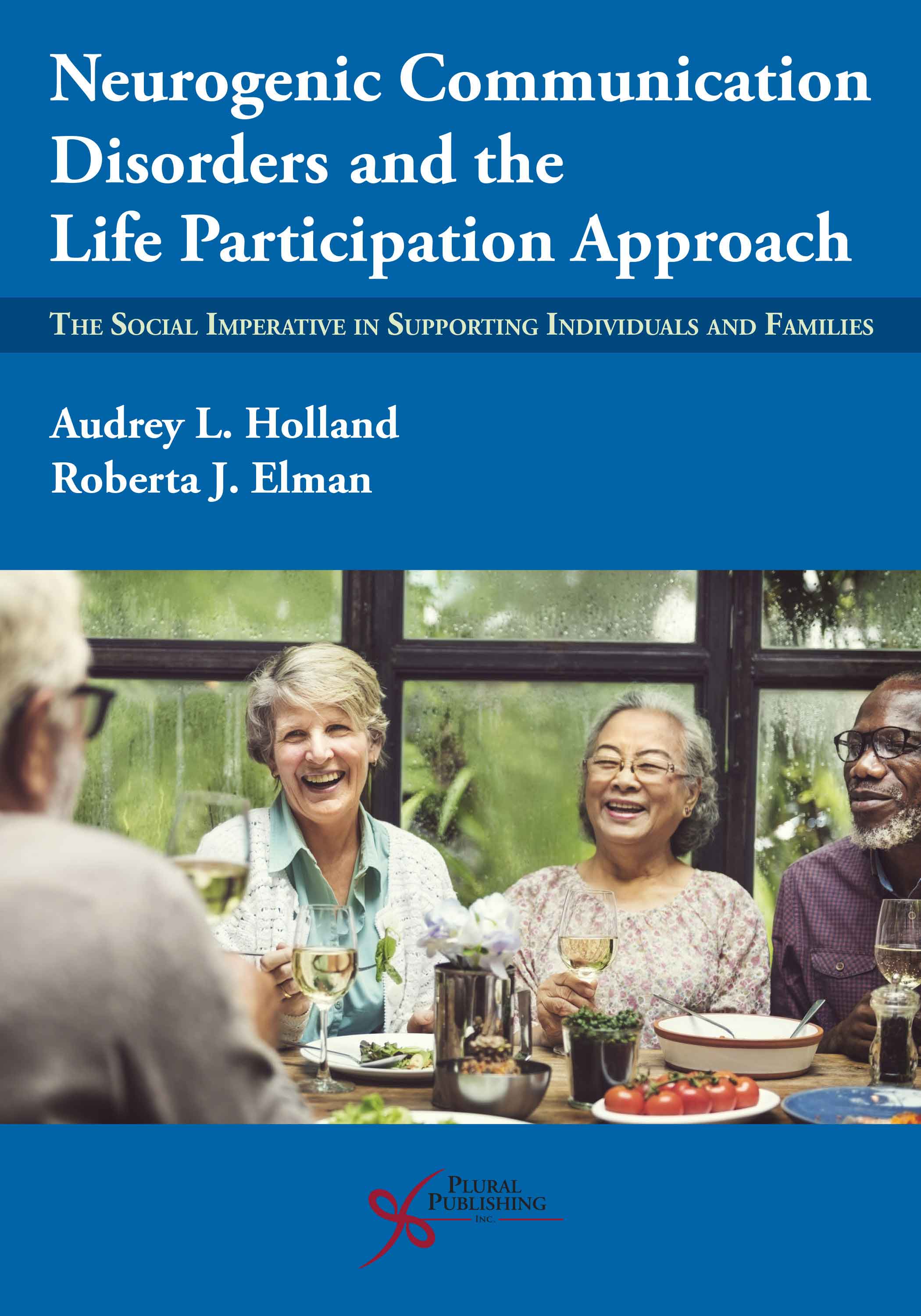
Neurogenic Communication Disorders and the Life Participation Approach: The Social Imperative in Supporting Individuals and Families
First Edition
Audrey L. Holland, Roberta J. Elman
Details: 242 pages, Softcover, B&W, 6" x 9"
ISBN13: 978-1-63550-295-4
© 2021 | Available
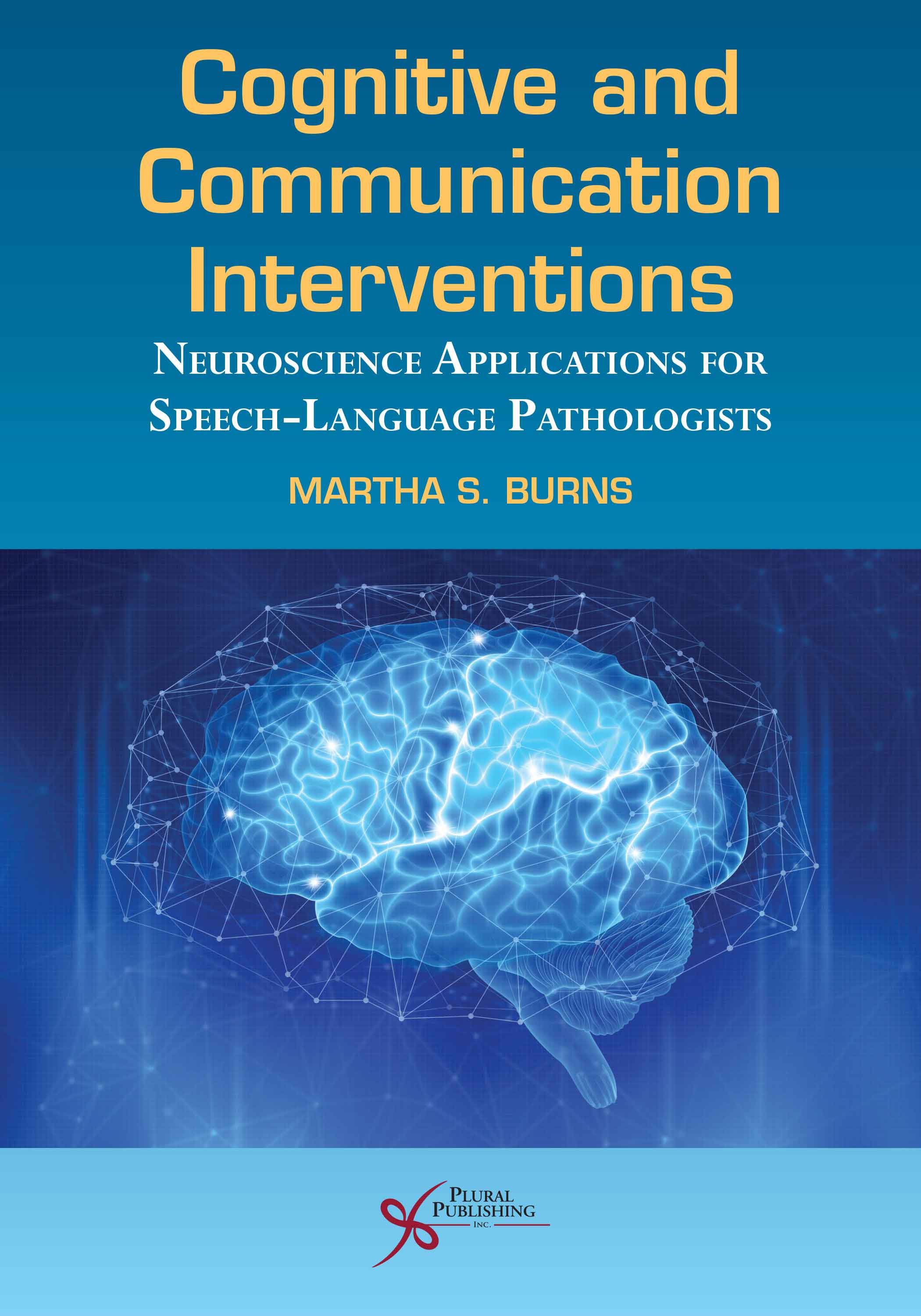
Cognitive and Communication Interventions: Neuroscience Applications for Speech-Language Pathologists
First Edition
Martha S. Burns
Details: 318 pages, B&W, Softcover, 7" x 10"
ISBN13: 978-1-63550-292-3
© 2021 | Available
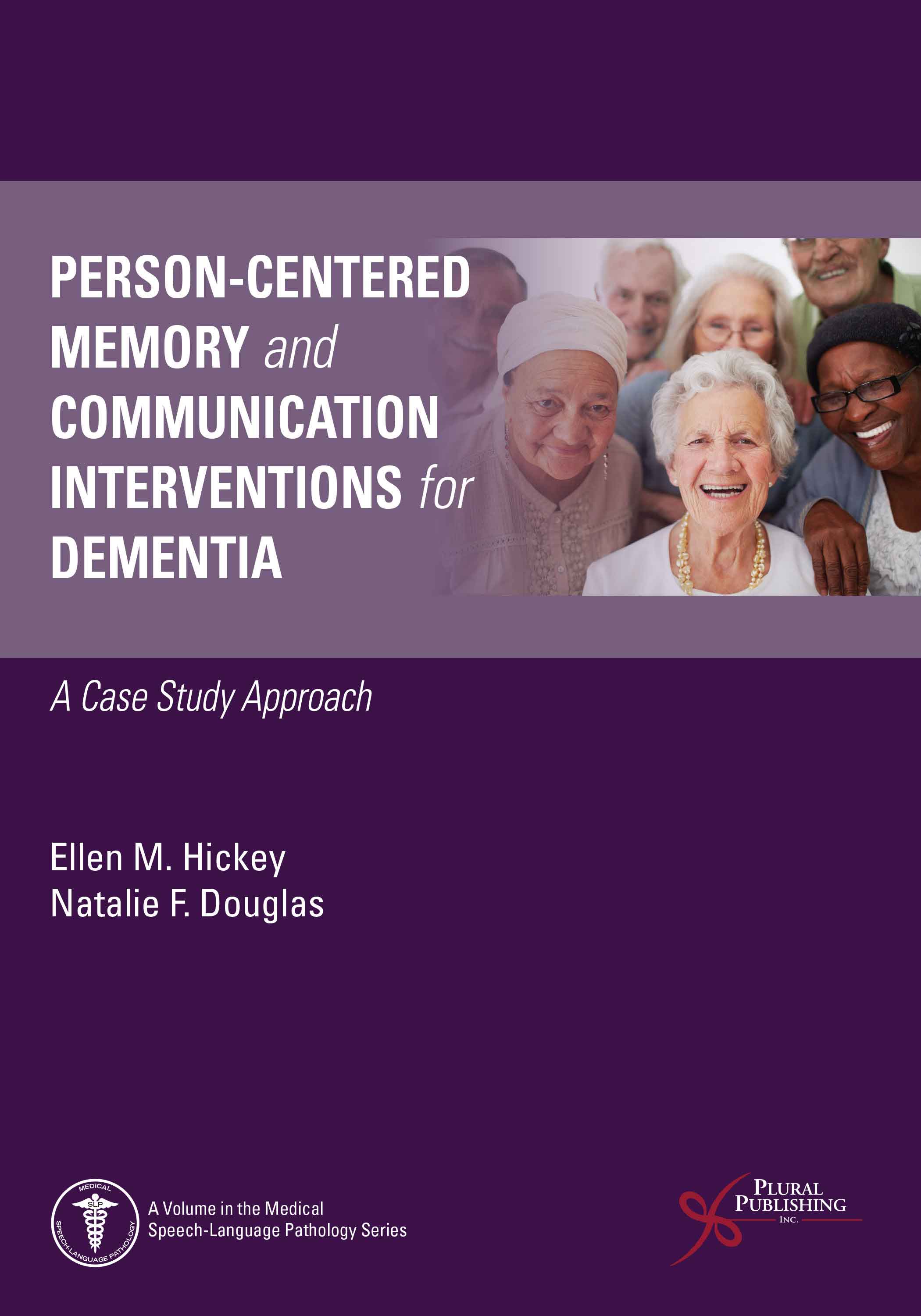
Person-Centered Memory and Communication Interventions for Dementia: A Case Study Approach
First Edition
Ellen M. Hickey, Natalie F. Douglas
Details: 178 pages, B&W, Softcover, 7" x 10"
ISBN13: 978-1-63550-301-2
© 2021 | Available
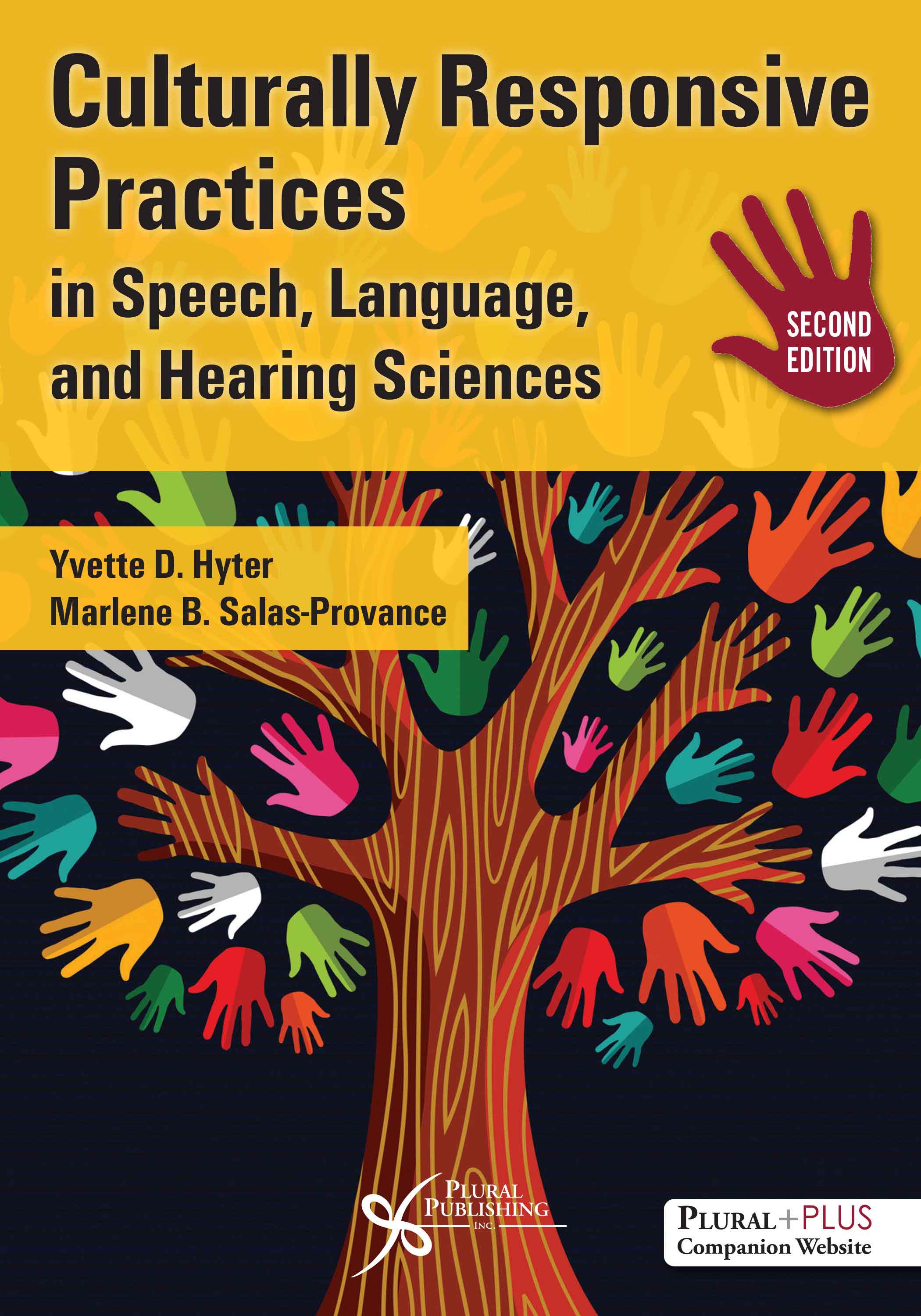
Culturally Responsive Practices in Speech, Language, and Hearing Sciences
Second Edition
Yvette D. Hyter, Marlene B. Salas-Provance
Details: 448 pages, B&W, Softcover, 7" x 10"
ISBN13: 978-1-63550-650-1
© 2023 | Available
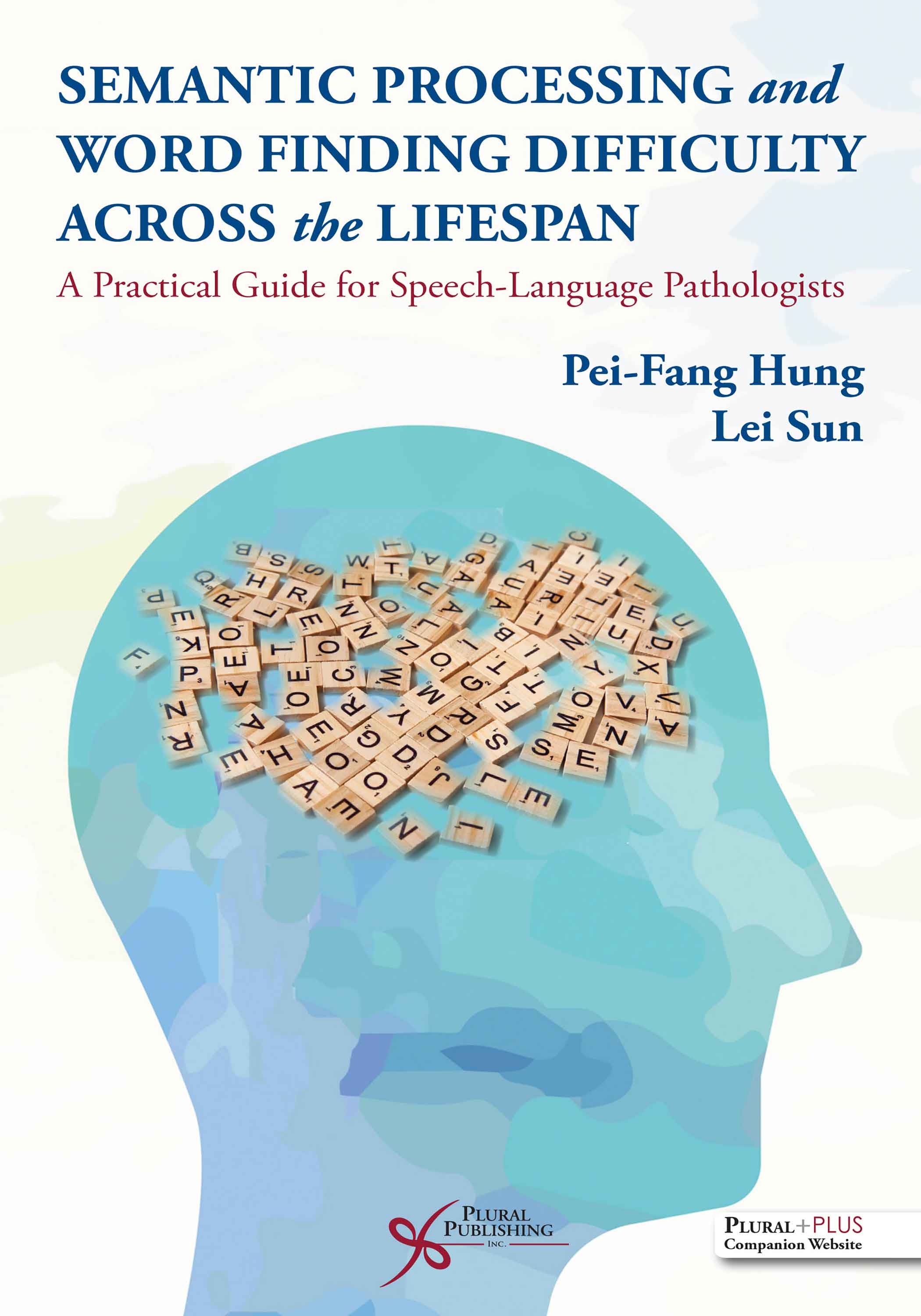
Semantic Processing and Word Finding Difficulty Across the Lifespan: A Practical Guide for Speech-Language Pathologists
First Edition
Pei-Fang Hung, Lei Sun
Details: 452 pages, B&W, Softcover, 6" x 9"
ISBN13: 978-1-63550-194-0
© 2022 | Available
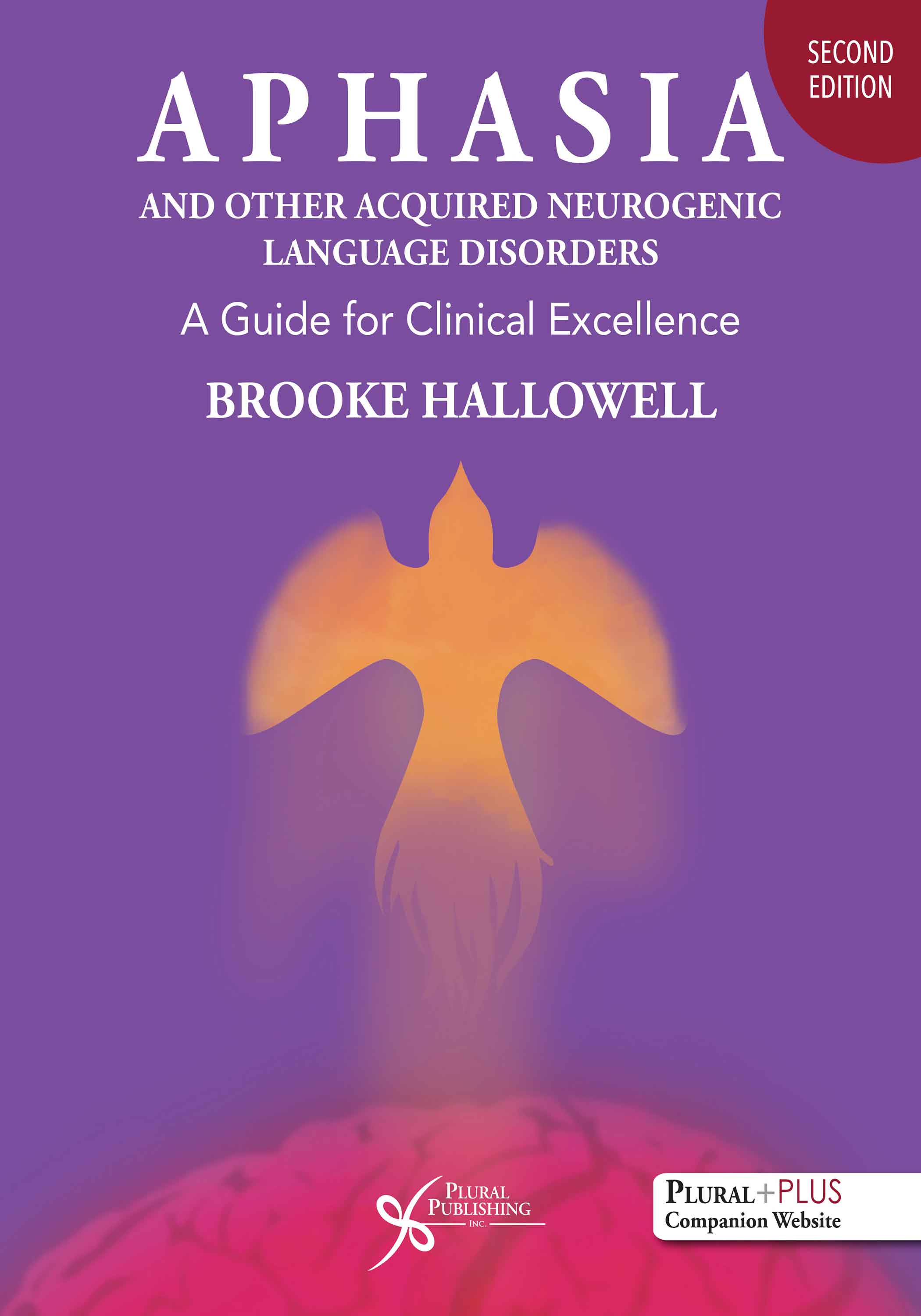
Aphasia and Other Acquired Neurogenic Language Disorders: A Guide for Clinical Excellence
Second Edition
Brooke Hallowell
Details: 629 pages, 2-Color with Full-Color Insert, Softcover, 8.5" x 11"
ISBN13: 978-1-63550-159-9
© 2023 | Available
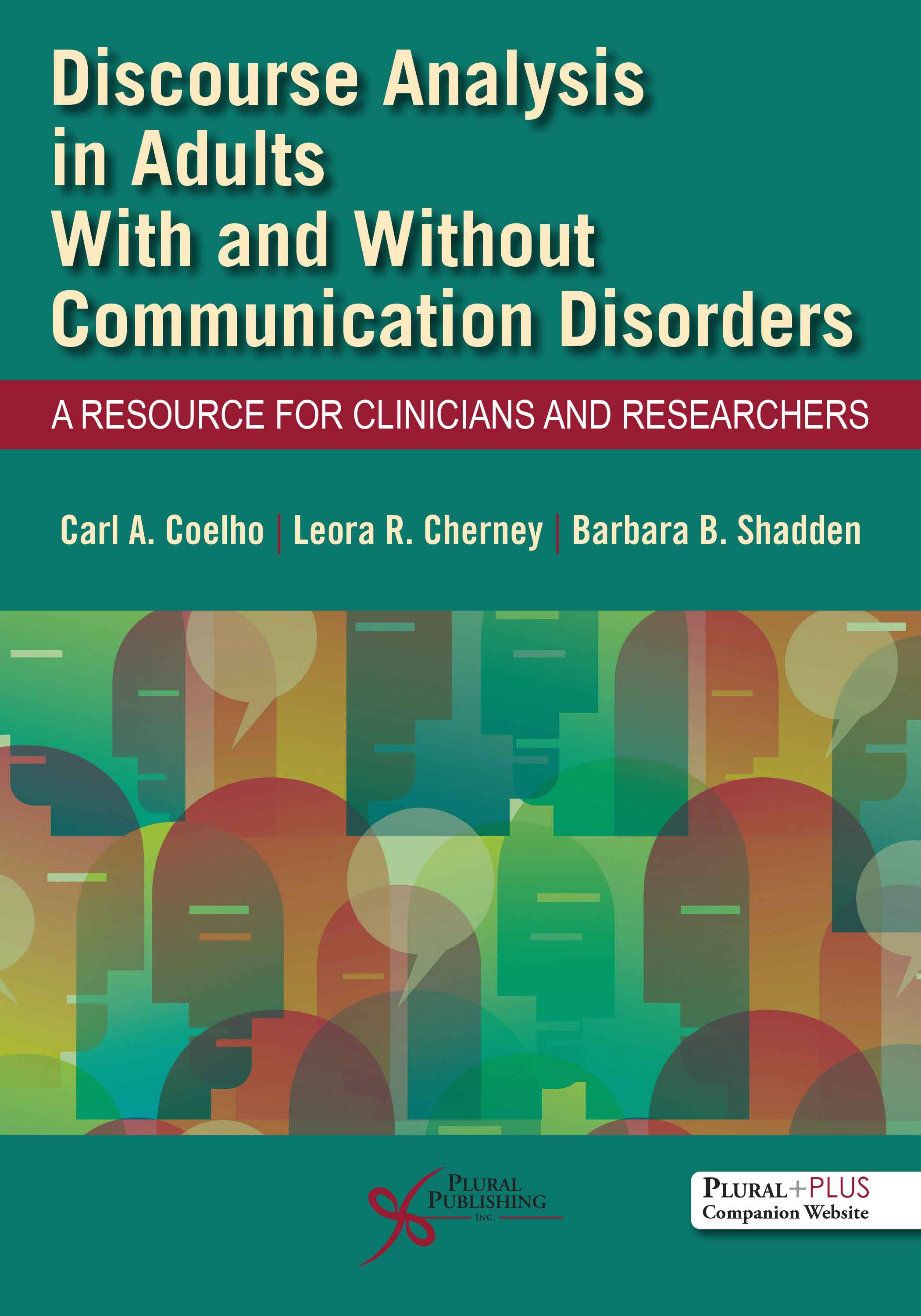
Discourse Analysis in Adults With and Without Communication Disorders: A Resource for Clinicians and Researchers
First Edition
Carl Coelho, Leora R. Cherney, Barbara B. Shadden
Details: 341 pages, B&W, Softcover, 7" x 10"
ISBN13: 978-1-63550-375-3
© 2023 | Available

